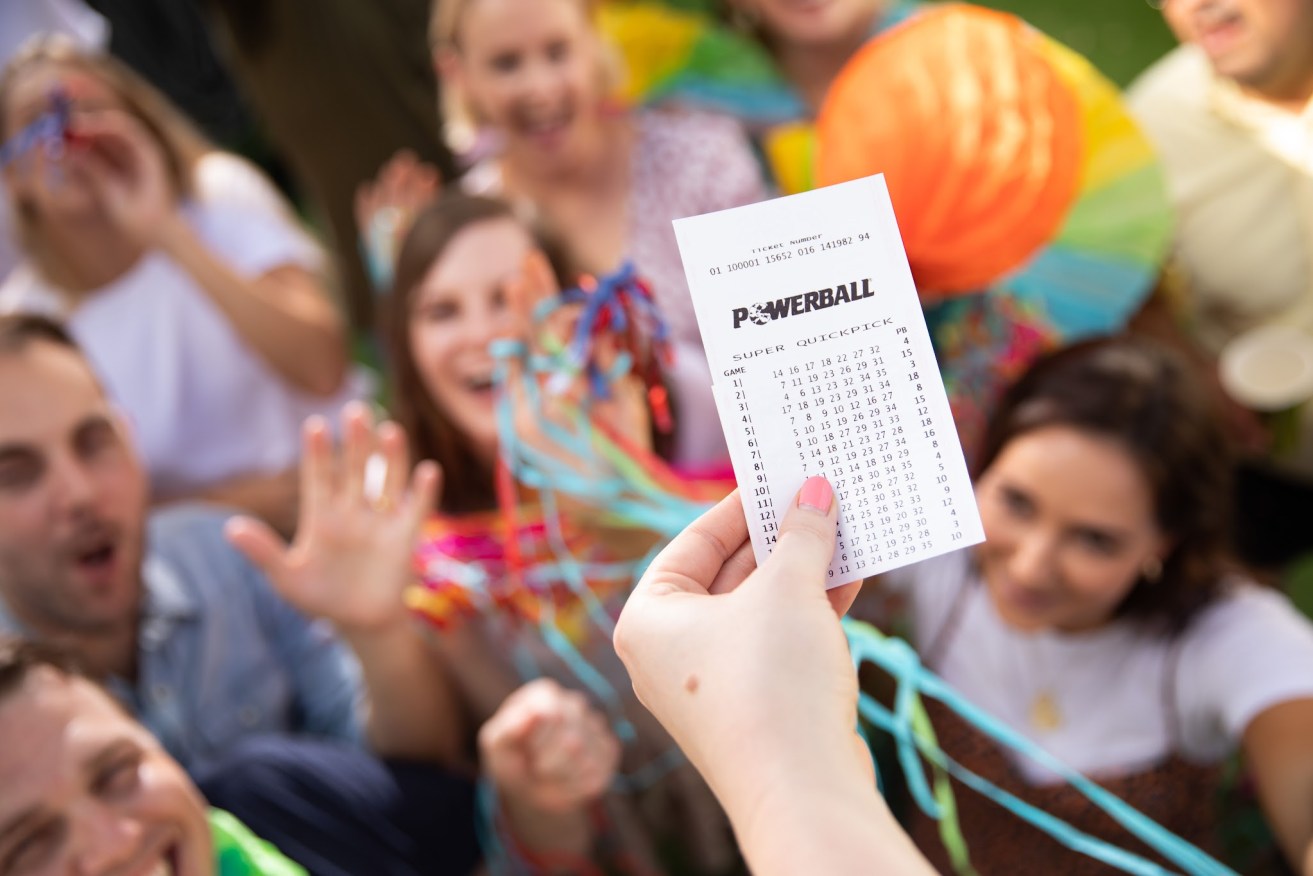Two Queensland companies the big winners from $200m Lotto jackpot – while rest of us almost certain to miss out
So, you think nobody won the $150 million Powerball last week? Think again. Two Brisbane-based companies, The Lottery Corporation (TLC) and Jumbo Interactive, walked away with the cash bonanza and are likely to do it again this week when it jackpots to $200 million.


The winner is really TLC and Jumbo Interactive (photo supplied)
In recent years, Brisbane has become something of a gambling capital. Two major lottery companies are based here and a large part of the city has been handed over to a $3.6 billion altar to the activity.
And gambling still is a one-sided business where the customer keeps coming back despite consistently losing money.
About 9.7 million Australians bought a lottery product last year and will probably do so again this year. However, it’s the jackpots that really drive the profits.
The benefit of the jackpots like the current one is that it draws in people who rarely bet.
The fear of missing out is a significant factor in the success of the lotteries. Ord Minnett once calculated a jackpot of $80 million was where FOMO kicked in and motivated Australians to think it was worth a go, so you can imagine the impact of a record $200 million jackpot.
Tamim Asset Management head of equities Ron Shamgar posted on social media last week that the the upcoming $200 million jackpot would be a huge boost for Jumbo Interactive.
He said it “is going to milk it’’.
He said its shares were a buy on the basis that the prospective riches lured him in to buy his first entry in 10 years.
TLC, which has a market value of $10.8 billion, was spun out of Tabcorp in 2022. It has long-dated and exclusive licences to operate lotteries all over Australia (except for Western Australia) and is considered one of the best performing lottery companies in the world.
Its products include Powerball, Oz Lotto and Scratch-its and its revenue is over $3 billion.
It earned $3.5 billion in revenue in 2022-23, which also includes keno earnings, where the odds of matching 10 numbers are one in 9 million.
Its smaller sunshine state counterpart, Jumbo Interactive, has a licence over digital sales.
It has been a cash rich few weeks for the companies. Firstly, there was the $100 million jackpot which went unclaimed and that meant it jackpotted to $150 million. That happened again last week which means a $200 jackpot this week.
That means there will be three weeks during which Australians will shovel money into an absurdly unlikely chance of winning something back.
For the punter, the odds of winning Powerball are estimated at one in roughly 134 million, which is precisely why TLC and Jumbo are successful. The odds of them winning are much less.
In fact, you would probably be more likely to be winner if you bought shares in either of the two companies. TLC paid 14 cents a share in 2023.
TLC claims it made 270 millionaires last year out of the 4.2 million customers who took a punt.
Australians pile in to the lotteries at an alarming rate and the bigger the jackpot the more likely it is that people will have a punt.
It’s hard to get any transparency out of what it delivers to the companies but JP Morgan said last year when TLC had a similar situation that at least $500 million in Powerball revenue would roll in.
In February last year it was reported that a $120 million Powerball jackpot generated about $240 million in turnover.
“Jackpots remain a significant driver of lottery retailing ticket sales (and revenue) and in any given year there is uncertainty as to the exact number and aggregate value of large jackpots,” Jumbo said.
Another thing going in their favour is that gambling is one of the few industries that does well in tough economic times, although TLC disputes this claiming there is no correlation.
The University of Sydney begs to differ.
“Gambling during recession times is typically highest amongst those who are experiencing the greatest financial hardship as it represents a potential way out,’’ it said in a study.
However, there is also some evidence that casinos suffer during recessions.
There are probably more concise psychological theories behind that but essentially it gives people a glimmer of hope and a distraction from the grind.
Covid was also a winning time for them.
If the Jackpot goes off this week, there will be a blaze of publicity that will be positive for the companies. If it doesn’t, they still win.












